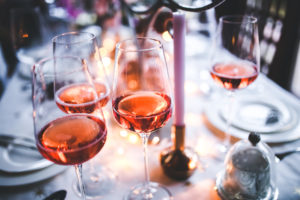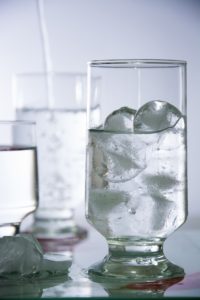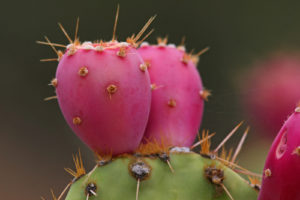
Let me start by saying that I am not encouraging anyone to consume alcohol or binge drink! However, as we get ready to ring in the New Year the reality is that many people will be celebrating, overindulging in alcohol, and waking up with a massive hangover. Hopefully, this won’t be you! I know from experience that there is nothing worse than dealing with a headache, nausea, and fatigue following a fun evening out. So, for those of you that know you have a big night planned, I’ve got some helpful tips to help prevent you from feeling hungover the next day. Because what’s better than a hangover cure? Not getting one at all! Read on to learn how you can prevent a hangover.
But first, a little background on what exactly causes a hangover. Ethanol (commonly known as alcohol) is primarily metabolized in the liver where it is converted to acetaldehyde by the alcohol dehydrogenase (ADH) and cytochrome P450 enzymes. Acetaldehyde is then oxidized to acetate by acetaldehyde dehydrogenase (ALDH). Hopefully, I haven’t lost you – stay with me! Most hangover symptoms are believed to be caused primarily by acetaldehyde, so the goal is to speed up this process. Chronic alcohol consumption increases the number of P450 enzymes in the liver speeding up ethanol clearance, but this can lead to a build up of acetaldehyde.1 It’s kind of like a traffic jam in your liver. This accumulation of acetaldehyde is what causes sweating, a rapid pulse, skin flushing, nausea, and vomiting.
The average person can metabolize alcohol at a rate of 7g/hour.2 To give you a frame of reference one 5oz glass of wine, a 12oz beer, and one mixed drink (1.5oz) are all the equivalent of 14g of alcohol.3 Maybe you’ve heard that you metabolize one drink per hour. Unfortunately, it’s more like one drink every two hours and that is only after you stop drinking. So, the more alcohol you consume the more potential that your liver will accumulate acetaldehyde causing hangover symptoms.
Now that we’ve covered that, here are my tips to beat a hangover!

Hydrate, hydrate, hydrate!
This one goes without saying and hopefully everybody knows the importance of hydrating throughout the night. A good rule of thumb is to drink a glass of water in between each alcoholic beverage. If you are drinking mixed drinks, I highly recommend sticking to vodka or gin and soda water, which is another great way to stay hydrated. If you are drinking something like a vodka soda, the other trick that works well is to order a single shot in a tall glass. Also, don’t forget to drink a glass of water before you go to bed and as soon as you wake up in the morning!
Pantethine
Pantethine is the active form of B5 (a metabolite of pantothenic acid) and is believed to accelerate the clearance of acetaldehyde by increasing ALDH activity. A recommended dosage of 600-900 mg of pantethine supplementation taken towards the end of a night of drinking can significantly reduce hangover severity.4 Note that pantethine is not the same as pantothenic acid. Pantethine is a more active form and actually two pantothenic molecules bound together making it more potent. Here is a brand I recommend.
Opuntia ficus indica (Prickly Pear)

Prickly what? There is some evidence that a specific patented extract (sold as Hangover Prevention Formula) derived from the prickly pear cactus fruit can prevent hangover symptoms. The defense mechanism of the cactus produces Heat Shock Proteins (HSP) that helps diminish the inflammatory response caused by the alcohol. In a double blind study 60 graduate students were given 1600 IUs of the extract 5 hours before binge drinking and found it to be effective at preventing nausea, loss of appetite, and dry mouth normally associated with a hangover.5 It did not seem to have an effect on reducing headache, diarrhea, dizziness, or soreness.
Don’t drink on an empty stomach
I’m sure you’ve heard this one before, “don’t drink on an empty stomach”, but it really does help avoid a hangover. When you drink alcohol either with or after a meal the food in your stomach slows down the absorption giving your liver more time to metabolize the ethanol and essentially preventing the acetaldehyde traffic jam. Be sure to eat a balanced meal with carbohydrates, fat, and protein which slows down digestion
Ginseng berries
A recent study found some promising results for hangover prevention using ginsenoside-free molecules (GFMs) from steam-dried ginseng berries. Although this was only an animal study, GFM stimulated ADH, ADLH, as well as increased the P450 activity quickly metabolizing acetaldehyde and preventing it from accumulating. Since accumulation of acetaldehyde is the main cause of feeling hungover, this could be the new anti-hangover cure. I will be anxious to see future human studies that test its effect on actual hangover symptoms.
There are also a number of supplements on the market claiming to prevent or cure a hangover. Most of them are just a bunch of vitamins, but some also include nutrients and herbs that support the liver. Some have good reviews, but there is no scientific evidence to support most of their claims. I have seen some that include prickly pear, but not the specific patented extract that has been studied. Some supplements that include liver support and antioxidants may help reduce some of the damage that alcohol does, but will not offer immediate results if they do not address clearing acetaldehyde from the body.
So, now you have some evidence based hangover prevention tips to try the next time you plan on drinking more than one or two drinks. I would love to hear if you have tried any of these and how they have worked (or not worked) for you. As always, be safe and drink responsibly!
References
- Smith, Colleen M, Allan D. Marks, M A. Lieberman, Dawn B. Marks, and Dawn B. Marks. Marks’ Basic Medical Biochemistry: A Clinical Approach. Philadelphia: Lippincott Williams & Wilkins, 2005.
- Cederbaum AI. ALCOHOL METABOLISM. Clinics in liver disease. 2012;16(4):667-685. doi:10.1016/j.cld.2012.08.002.
- National Institutes of Health. Rethinking Drinking. Drink Size Calculator. https://www.rethinkingdrinking.niaaa.nih.gov/tools/Calculators/drink-size-calculator.aspx
- Gaby, A. Nutritional Medicine. Concord, NH: Fritz Perlberg Publishing; 2011.
- Wiese, Jeff, et al. “Effect of Opuntia ficus indica on symptoms of the alcohol hangover.” Archives of Internal Medicine164.12 (2004): 1334-1340.
- Ik Lee, Do, et al. “Ginsenoside‐Free Molecules from Steam‐Dried Ginseng Berry Promote Ethanol Metabolism: An Alternative Choice for an Alcohol Hangover.” Journal of food science79.7 (2014): C1323-C1330.

